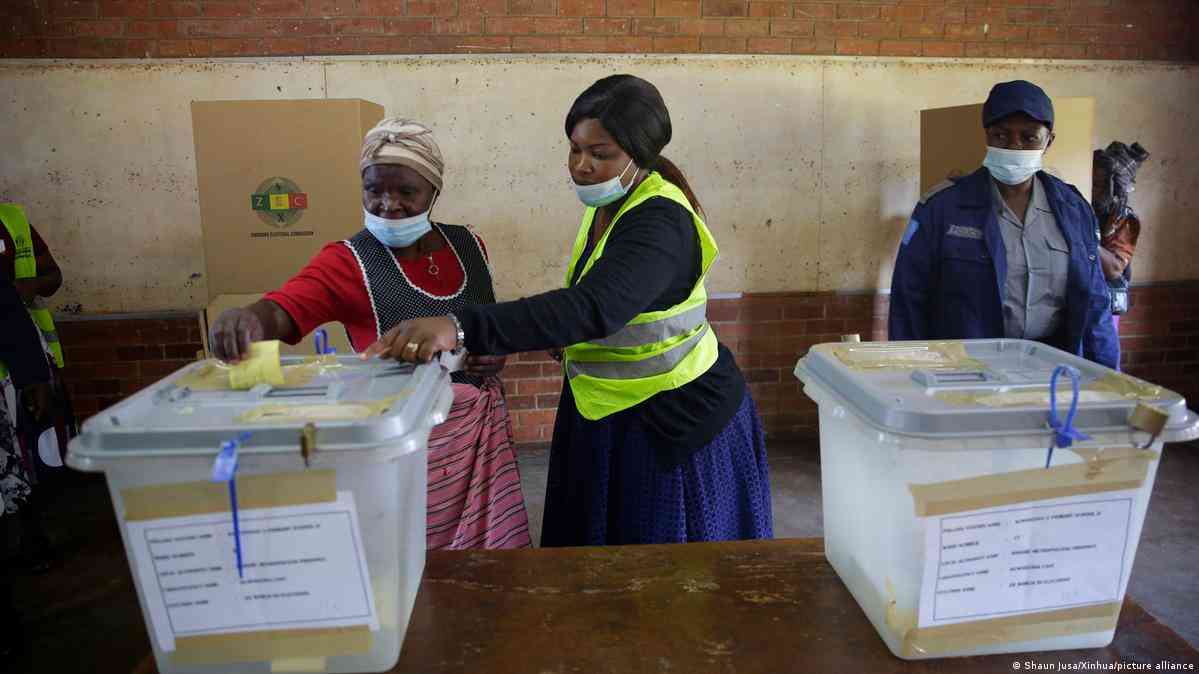
President Emmerson Mnangagwa’s decision to set this year’s election date before any reforms could prove to be a costly blunder for the country as it might have serious consequences, experts have said.
Mnangagwa last week announced that the harmonised elections will take place on August 23 this year.
He made the announcement before Parliament could pass the Electoral Amendment Bill.
The proposed law sought to introduce a number of reforms in the country's electoral system, including the introduction of electronic voting and the establishment of an independent electoral commission.
Legal think-tank, Veritas, questioned the credibility of the upcoming elections without electoral reforms.
“Now that the election proclamation has been published none of them (recommended reforms) can be implemented, so the 2023 elections will have to be conducted without them,” Veritas said.
“This will have serious consequences not just for the credibility of the elections and for our political stability, but also for our economic development and international relations.”
The Zimbabwe Election Supervisory Network (Zesn) said the failure to pass the Electoral Amendment Bill meant that the youth and women quota in the National Assembly can no longer be met.
- Letter to my people: Mthuli Ncube is mounting a dead horse
- Arbitration insights: The origins of commercial arbitration
- News in depth: Mnangagwa administration elbows out British investor under a cloud
- Letter to my people: Mthuli Ncube is mounting a dead horse
Keep Reading
Zesn is cognisant of section 157 (5) of the constitution, which provides that after an election has been proclaimed no change to the electoral law or any other law on elections will apply for that election,” Zesn said.
“This means that 2023 elections are being held with no legal reforms given the fact that the constitution requires election of everyone to be in accordance with the Electoral Law; which is the Electoral Act.
“Zesn notes that the failure of the Electoral Amendment Bill to sail through before the proclamation was passed means the constitutional provisions on youth quota and proportional representation cannot be applied or implemented.
“The result is that the youth quota and the PR provisions fall away for now. They await implementation in 2028.”
Veritas said Zimbabwe's chances of rejoining the Commonwealth would be slim if the polls are deemed not to be credible.
“Electoral reforms leading to free, fair and credible elections are a condition the country must meet if it is to rejoin the Commonwealth,” Veritas said.
The Commonwealth is a major trading bloc, and Zimbabwe's membership would have given the country access to a wider market.
Mnangagwa submitted an application on May 15, 2018 to rejoin the grouping of 54 countries.
The late former president Robert Mugabe pulled Harare out of the association in 2003 after disputed polls.
Zimbabwe Electoral Advocacy Trust executive director Ignatious Sadziwa said there was no guarantee that the country will hold free and fair elections.
“Going into yet another election without implementing electoral reforms, which are a product of our own legislative efforts in the form of the electoral amendment bill is catastrophic and self-defeating,” Sadziwa said.
“Expecting free and fair elections under such horrendous conditions is just too naive and artless on the part of the opposition political parties.
“Diplomatic relations will be further stained as a result of these Kafkaesque elections if mitigatory measures are not employed to avert the crisis.”
An election expert and former Election Resource Centre programme manager Solomon Bobosibunu said hopes of substantial electoral law changes have been extinguished.
“No change is allowed six months before the election,” Bobosibunu said.
“For five years civics have tried to facilitate movement in the direction of reform and this was deliberately ignored till we are now two days into election mode.”











